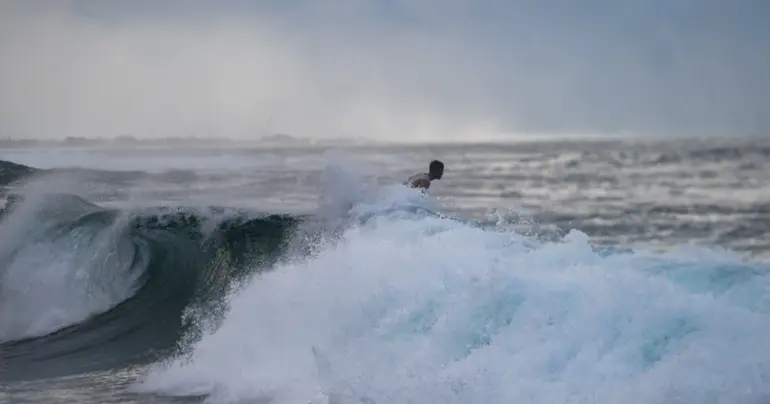New book puts "Samoan governance" on the radar
 By Fuimaono Lumepa Hald
•
26 October 2022, 12:00PM
By Fuimaono Lumepa Hald
•
26 October 2022, 12:00PM
A book signing event will be held on Thursday for a new publication released last month that focuses on governance in Samoa and looks at the evolution of traditional Samoan leadership.
The book Fono: The Contest for the Governance of Samoa looks at Samoa’s traditional system of governance and the influence that the country’s early matai (chiefs) had in moulding the modern Samoa state some 120 years later.
The book was written by Dr. Peter Swain, who has spent three decades managing development programs for international organisations in the Pacific island nations.
He is also the co-author of an autobiography His Palemia: A Memoir which he wrote with Samoa’s former prime minister Tuilaepa Dr. Sa'ilele Malielegaoi and published in 2017.
In an exclusive interview with the Samoa Observer on Tuesday, Dr. Swain said he felt compelled to write the book as he came across a lot of people who forgot about Samoan history.
"People often tell me they forgot parts of our history so I thought it was a good idea to write about it in detail," he said.
"People have forgotten so much history in Samoa. It is hidden away in academic journals so I wrote about the first settlement in Samoa up to their last election in 2021.
"Essential part of the Fono, Samoan governance. The fa'asamoa and the fa'amatai are central to the way governance has developed.
"So during the New Zealand and German period and even now, the fa'amatai was central to that.”
According to the author, it was Lauaki Namulau'ulu Mamoe (1848–1915) who promoted the concept of the fa'amatai being at the centre of government.
"Lauaki pushed that idea that the fa'amatai should be center to the government. For his advocacy he was exiled to Saipan in 1909," he said.
Dr. Swain said the timeline of his book covers starting from the early settlement of Samoa right up to last year’s 2021 General Election, which he indicated is about 3,000 years.
"The book starts three thousand years ago. When Europeans arrived, they saw that there was a village government so the Germans and Americans and English wanted to make a king of Samoa so they could centralise the government by controlling that person," he told this newspaper.
"Various kings were knocked down because Samoans wanted to choose their own leaders.
“Samoans wanted to control their own destiny. It took 60 years for Samoans to finally have control of their government.”
Throughout Samoa’s history there were periods when there were contests for the governance of Samoa, added the author.
"The 2021 general election was another contest for the governance of Samoa and that was a tricky period.
“I go through it in the last chapter in detail. One of the issues is the balance of power between the judiciary, the parliament and the executive, and how that played out in history during that election.”
Asked if there were important messages for the Samoan readership, Dr. Swain pointed to the talanoaga fa'amatai, consultations of chiefs.
"There is a number of messages. One important thing is that there is a long history. We can easily get caught up in the spur of the moment.
“What's important is the long history, one of the things I learned from Lauaki was that at the heart of the Samoan government is the fa'amatai, and the talanoaga talking things through and resolving things.
"At the end of the day, Samoans resolved it themselves.”
At the height of the constitutional crisis that followed last year’s General Election, there were concerns that the tussle for power would lead to violence, said the author.
"In 2021 there was concern that there was going to be violence and so forth but Samoans peacefully resolved it,” said Dr. Swain.
"Samoans having faith in their own system of governance is very important.
"If you go into legal ways of resolving problems, you can do it legally but you still have to work together with people. It is the balance of those things working together.
"In Samoa's situation, it is the chiefs talking together so it is difficult to exclude some of those chiefs from the conversation.”
Dr. Swain is married to Samoan Luamanuvao Dame Winnie Laban and is an Adjunct Research Fellow at Victoria University of Wellington.
"I have had a long relationship with the Pacific. I managed the international volunteers program for the last thirty years," he told the Samoa Observer.
"I am married to Luamanuvao, Dame Winnie Laban, when I married Luamanuvao she said that you are not marrying me, but my family and my country."
When asked if he was a matai, he said, "I am a tausi alii ia Luamanuvao, a caretaker of Luamanuvao.
"I have been asked by the families to take on a matai title, but my response to them is this: Samoans have two things, their lands and titles so I tell my families don't give those to the palagi.”
The book signing event on Thursday at the Samoa Stationery and Books (SSAB) mega shop in town will start at 12pm and end 2pm.
 By Fuimaono Lumepa Hald
•
26 October 2022, 12:00PM
By Fuimaono Lumepa Hald
•
26 October 2022, 12:00PM











